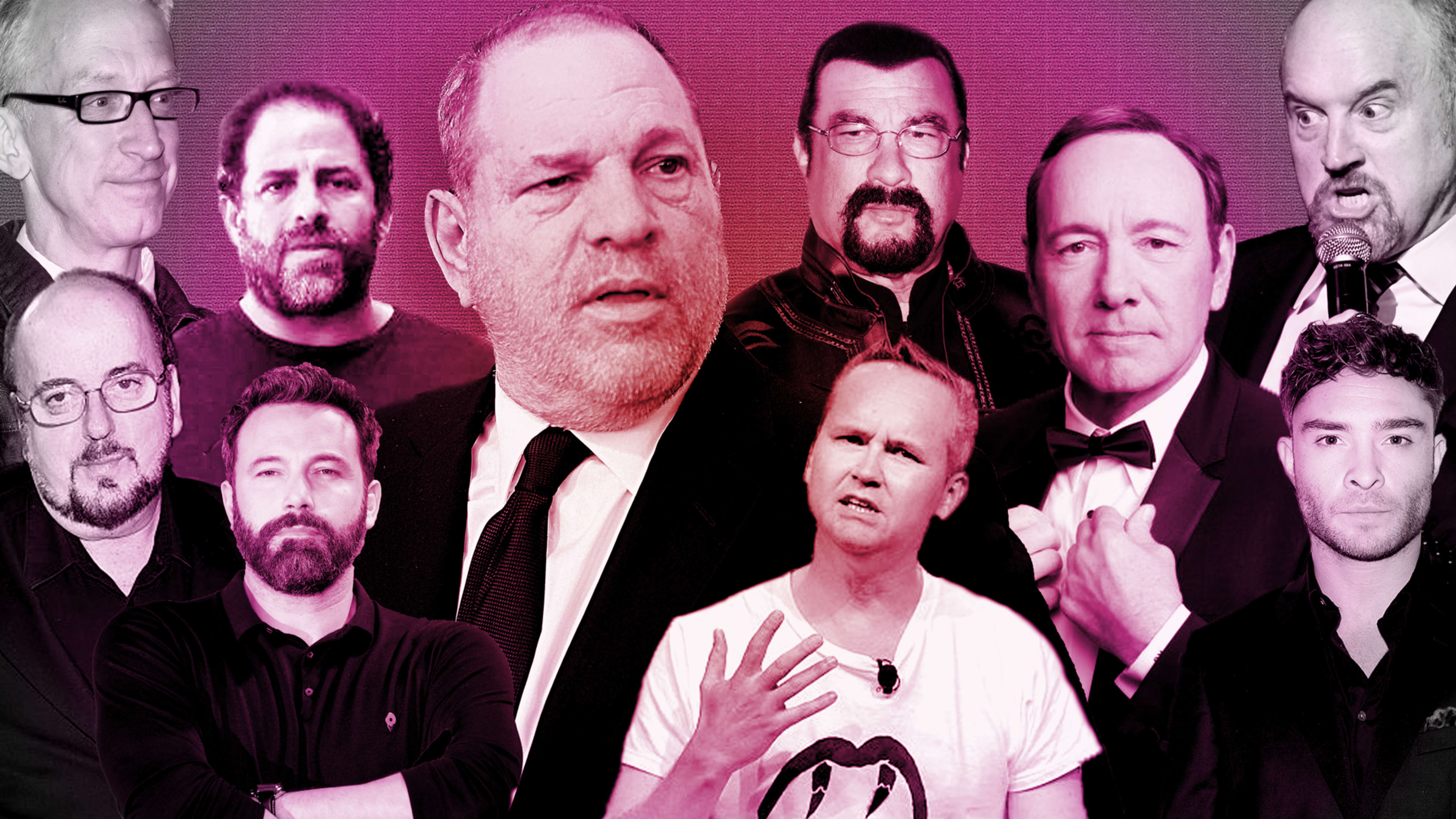Working for a big PR firm means you can’t drop a client just because you’re personally offended by their behavior. Most of the time, the decision falls to the firm’s partners and not the actual publicist. It’s one of the reasons Hunter Frederick prefers not to work for a big PR firm. Especially right now.
Frederick is someone other publicists call when their clients have made a truly monumental mistake (Lindsay Lohan has obtained his services, for instance.). He’s a crisis manager–at a time when the totality of Hollywood appears stuck in an all-consuming crisis.
“Everybody’s worried their client might be next,” Frederick says. “There’s some fear right now involved with trying to figure out a delicate way of asking your client if there’s any stuff in the closet that might pop up. But that’s just part of the job.”

“In the past, unfortunately, the Hollywood norm was to sweep these kind of allegations under the rug,” Frederick says. “How the system used to work was if (a victim) wanted to bring something like this forward and (that person) didn’t have solid proof, (they would have) ruined (their) career. There’s money and these other levels of security protecting powerful people. Only recently are we seeing those kinds of protections falling apart. People can come forward now, sometimes even anonymously, and there’s not a lot of repercussions for it.”
Some publicists, like Frederick, have principled stances against taking on a client accused of sexual abuse. Part of being a publicist, however, means not knowing all the unseemly details about a client in advance, and having to be a bit of a detective to find out whether they exist. Clients pay publicists to keep their ears to the ground for incoming controversy. Hollywood is a very small town, so there’s always rampant chatter about things that have not reached the public yet, and may never. The big question, though, is when should a publicist go from knowing a terrible secret about a client to addressing it–and whether to do so as a publicist, or just a person.
“You don’t want to come forward when there’s nothing out there, but at the same time if you know something out there is going to be released, you have to get ahead of it,” Frederick says. “If there’s hard evidence and you know your client did it, you really can’t shield behind it anymore. I think even 10 years ago, you could have, but we’re in a completely different place now and we have to as publicists reteach ourselves how to handle situations like this.”
The handling might involve anything from mere media coaching to crafting an apology. (Frederick prefers to let clients write their own apologies before applying some professional polish to it.) A well-crafted apology can accomplish a lot in defusing a situation, depending on the crisis. For instance, Jonah Hill’s apology for using a homophobic slur in 2014 made it so Jonah Hill is not immediately associated with homophobia in 2017.

Of course, in a situation like Kevin Spacey’s, even the best apology would be ridiculously inefficient; a squirt gun against a five-alarm fire. In situations like Spacey’s, where the sexual offenses have gone on for so long, and the list of allegations keeps growing, the publicist tends to jump ship. Not without bringing their own culpability into question, though.
Lately some publicists and managers are being held accountable for keeping quiet. Louis CK’s manager, Dave Becky, for instance, has been under fire recently for potentially keeping CK’s abusive behavior under wraps. There’s a perception that a publicist’s or manager’s role can crossover into being that of an enabler.

[Photo: Debra L Rothenberg/FilmMagic]
“It does become a problem when you’ve got your client who’s paying you a lot of money saying ‘I need you to keep this quiet for me,’ and it goes against your moral compass,” he says. “That’s where you have to ask yourself if this is worth it. I’ve personally dropped clients when my moral convictions kicked in and I know other publicists who have done the same thing. Sometimes publicists aren’t in a position where they can just walk away, though, and I respect that.”
As mentioned earlier, the comparative ease of dropping a client is one of the reasons Frederick enjoys not working for a huge PR firm. He once represented a pastor who was fired for having several extramarital affairs. In the middle of his retainer, though, he found out the client had also been accused of abuse. After security personnel and the investigators he works with confirmed the rumors, Frederick let this client go. It’s not the same thing as a Kevin Spacey or a Harvey Weinstein-level figure, but it’s an example of following one’s gut just the same.
Every publicist and crisis manager has his or her own boiling point, but they would do well to fortify those positions for the coming storm. We may be witnessing the end of the culture of open secrets, and those who are seen as protecting it may not survive, professionally.
“I think there’s such a strong adversity to misogyny and to any kind of abuse right now–no matter what it looks like and who it’s against–that you’re going to have a hard time keeping those kinds of allegations quiet going forward,” Frederick says. “Your day-to-day substance abuse, extramarital affairs–I think those will continue to be kept quiet or bought off. But I think we are in a new era of figuring out how to approach abuse allegations and misogyny and the sexism and racism that is Hollywood. And personally I think it’s about time.”
Recognize your brand’s excellence by applying to this year’s Brands That Matter Awards before the final deadline, June 7.
Sign up for Brands That Matter notifications here.
